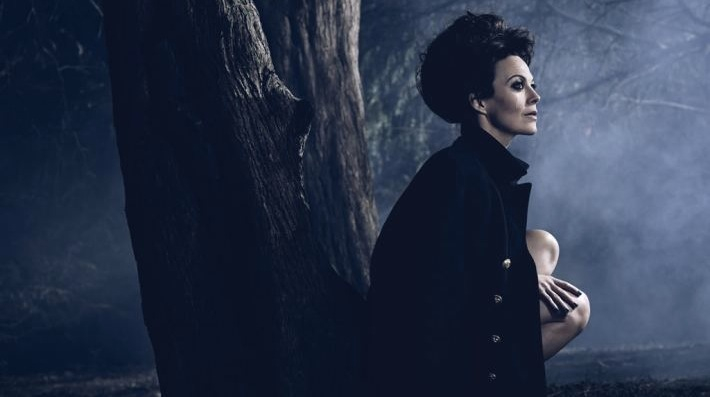So, a friend of mine mentioned that she was off to see Medea at the cinema, in a live broadcast from its last night at the NT. This reminded me I’d not seen it despite having really wanted to. So, tonight I drove out to the Cineworld in Haverhill to watch it.
It was so powerful, so intense. And the sympathetic new version by Ben Power opened new windows into the driven, divinely insane, reckless world of Greek tragedy.
Directed by Carrie Cracknell, the play stars Helen McCrory as Medea, a woman with a desperate, violent past. She has sacrificed all for love and is in the process of losing everything. There’s this sense that she’s hating what she’s doing even while she’s doing it, but she cannot stop herself.
On a set that inverts the traditional female domestic spaces of home and wilderness, the outer stage is a house. And yet the central space, where most of the action is framed, is a dark, shadowy forest. Medea is a witch, a devotee of Hecate and her inner world is that of the night and the Moon – she internalises the Wild. She draws her knives and poisons out of a trapdoor beneath her patterned carpet. She is barbarous and foreign to the royalty of Corinth, who want her husband Jason to marry Kreusa, the king’s daughter. Medea and her sons are to be banished.
In the gallery above, the picture-perfect and silent bride Kreusa and her father exist behind a blue veil, in a tableau of exquisite wedding preparations and stylised joy. This contrasts with Medea’s combat-trousered, relentless and disordered misery. We see Kreusa not as she is but how Medea in her jealous rage imagines her.
The Chorus is composed of the women of Corinth, in their floral dresses. Though initially sympathetic, they become more horrified and unnatural as Medea’s terrible vengeance takes shape. Their floral patterns look increasingly like bloodstains, their coiffed hair growing wilder and their dresses more ripped the more the action rockets to its conclusion. Their twitching movements and spasming dances put one almost in mind of Silent Hill monsters by the end – the world has become monstrous, and all of the news is bad. At the denouement, they surround Jason like a forest of zombies.
The framing of the final scenes, where Medea staggers off into exile, carrying the bodies of her dead children, after Jason’s horrified rejection and denial, was also unbearably moving.
Yet McCrory’s Medea is also faintly, horribly admirable, in her absolute failure to accept any kind of soft-pedalling or compromise. She is suffering, and she will not go along with any plan to minimise or play down her own internal agony to make anyone else feel better, no matter who they are. Rather, she will do terrible things to herself rather than make terms with any of her torturers, even in the face of reasonable offers, or disinterested friends. She raises many more questions than she answers.
It’s also worth mentioning that I loved the music, composed by Will Gregory and Alison Goldfrapp. Its sombre strings and plangent passages perfectly complements the dark, disintegrating world of the central character.
All in all I thought it was a work of perfectly focused genius, never for a moment less than completely and utterly compelling. I am so sorry I caught it on the last night, as there are a thousand details in it I would have loved to have seen again. I can only hope they replay it in the cinema again at some point, as they do with the Danny Boyle Frankenstein.

